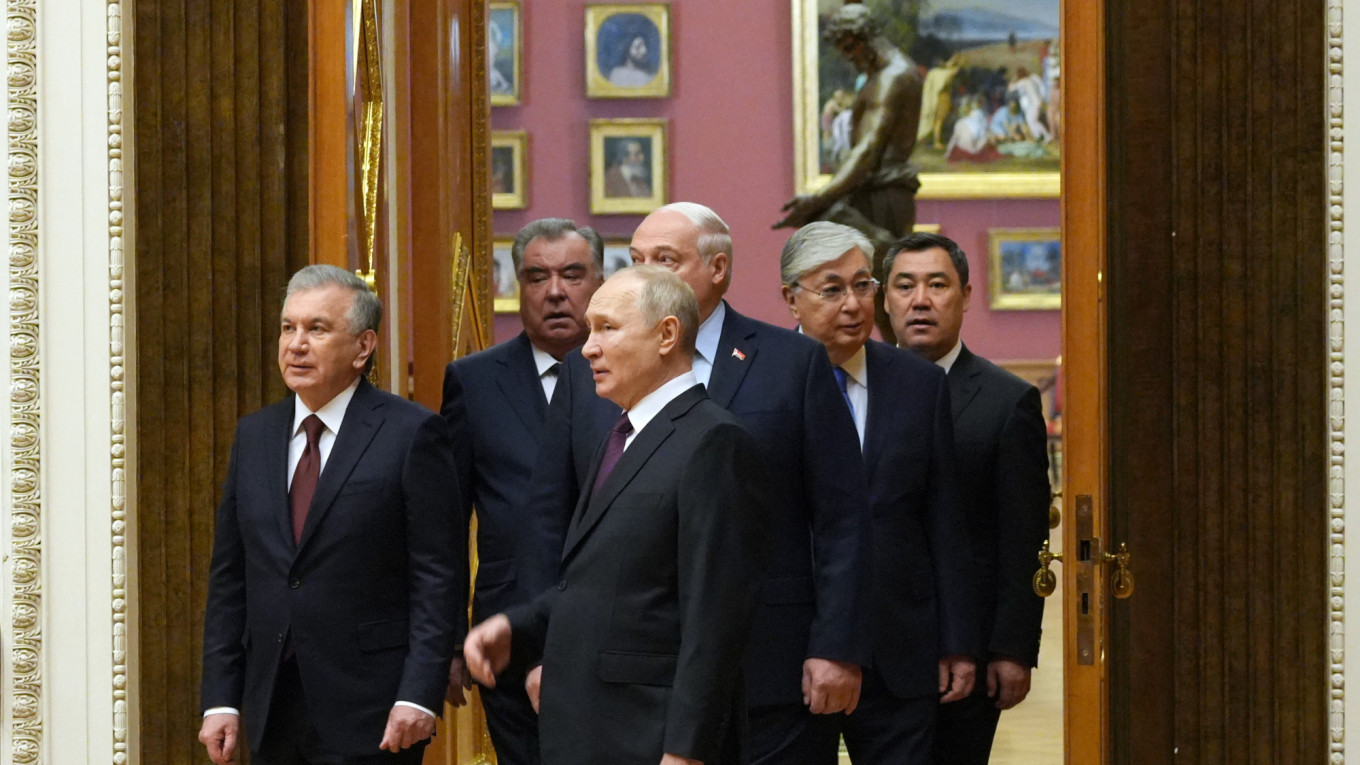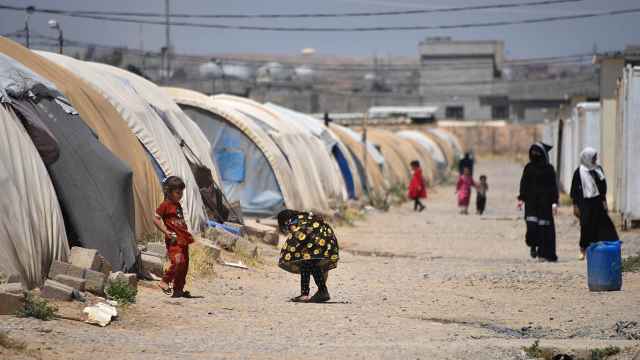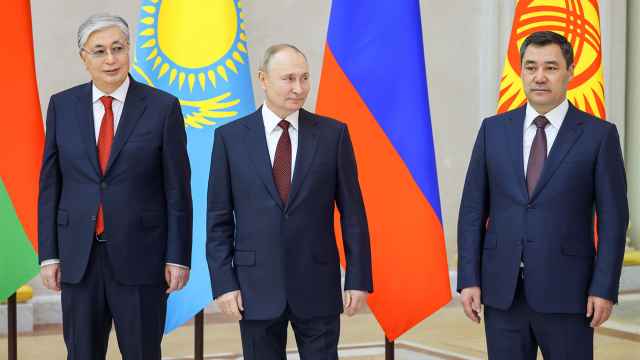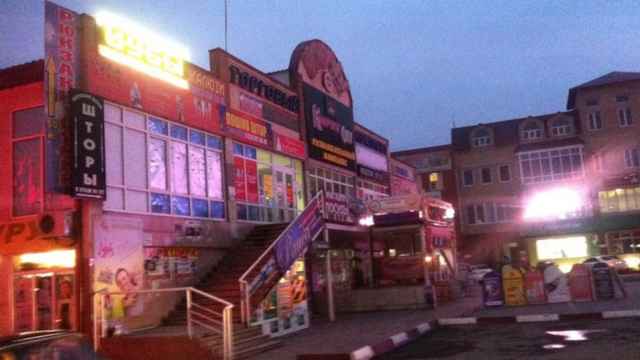Dmitry Medvedev, deputy chairman of Russia’s Security Council, is famous for his scintillating statements, but he occasionally suddenly fails in his scintillating activities. He is then successfully replaced by Russia’s main ally, Belarusian President Alexander Lukashenko.
His most memorable statement recently involved his thoughts on Armenian politics:
“Well, what kind of politics is this? Who needs Armenians besides us? Nobody needs them... What France? What Macron? Tomorrow Macron will be gone, and everyone will forget about this Armenia.”
In response, protesters pelted the Belarusian Embassy in Yerevan with potatoes and eggs, while the Kazakh Foreign Ministry (Lukashenko couldn't keep silent about them either) summoned the Belarusian ambassador.
These seemingly insignificant events conceal a sharp increase in tensions between Russia and its allies in the former Soviet space. Armenia also expressed extreme dissatisfaction with Russian Foreign Minister Sergei Lavrov’s recent comments on the situation in the Caucasus.
And their dissatisfaction is understandable. When Moscow was building “Eurasian unions” in the first half of the 2010s, bribing potential members with loans and prospects of participation in a large and unified economic space, the situation looked very different from today.
Back then, Russia, which was considered European, gathered allies around itself that had no access to the seas, positioning itself not only as a powerful economy but even as a “bridge to Europe” — not to mention the qualities of a military protector.
Ten years later, any attractive features that Russia had at that time have been lost.
First, Moscow is embroiled in a major European war that has recently spilled over into its territory. Although it is not officially called a war, the CSTO Charter refers to the possibility of “collective defense in ... cases of threat to the security, stability and territorial integrity” of member countries. Russia is certainly not going to turn to Kyrgyzstan or Tajikistan for protection, but the new situation appears to be a source of tension at the very least. I am not saying that if NATO has doubts about accepting Ukraine into its ranks because its borders are unresolved, then the presence of Russia, which could lose some of its “federal subjects,” in integrative military-political associations becomes a risk for the rest of their members. And doubts loom on the horizon as to whether Moscow, which buys drones and missiles from Iran and shells from North Korea, is an adequate partner in military-technical cooperation.
Second, there are even more problems economically. Russia, of course, has greatly contributed to CIS countries’ economic growth with the mass wartime outflow of its own citizens, which caused the GDP growth rate in several post-Soviet countries to double in 2023. But at the same time, membership in Eurasian associations has become highly suspect. Western partners reasonably believe that any supply of goods to these countries is a hidden export to Russia (Armenia is now shipping dozens of times more products to us than it has ever produced). Therefore, the mere fulfillment of the terms of the Eurasian Economic Union with its common customs space will be a sufficient reason for sanctions pressure from the West, if not now, then in the future. It is worth adding that Russia's main advantage — its status as the most important transit country — is being nullified as China builds routes bypassing its territory, Moscow blocks pipeline deliveries on spurious pretexts and the West refuses to formalize transit through Russia.
Third, Russia's cooperation with its allies on migration has also significantly changed recently. During the years of the “launch” of Eurasian integration, Russia was the most important destination of labor migration from Central Asia (remittances of guest workers to Tajikistan made up over 40% of its GDP). With the outbreak of the war in Ukraine, Moscow set its sights on migrants as a likely mobilization resource, attempting to recruit them into the army. In addition, the growing threat of Islamic terrorism is causing a surge in persecution of people from the southern republics of the former U.S.S.R. Following the terrorist attack at Crocus City Hall, at least 100,000 Tajiks and citizens of other countries in the region left Russia. Labor migration from Central Asia, once a major pillar of post-Soviet integration, is now shifting toward Turkey and the Middle East, a trend that Moscow has absolutely nothing to counter.
All of these circumstances (not to mention the dramatic increase in China's role in Central Asia and Turkey's role in the Caucasus) are causing hysteria in and around Moscow, as we saw last week. In recent years, Russia has become the most sanctioned country in the world and a global pariah — and such powers cannot be the centers of integration associations. Therefore, the structures that Moscow has created in the post-Soviet space since the early 2000s will simply start to collapse in the very near future. Armenia has already de facto withdrawn from the CSTO and is increasing its cooperation with the EU, the condition for which will sooner or later be withdrawing from the Eurasian Economic Union.
Kazakhstan, although it often repeats its mantra that it will not "blindly" follow sanctions, is nevertheless working with Russia more and more cautiously and treats Moscow's actions with growing suspicion. Kyrgyzstan is tightening its import-export requirements by the day — and it is no secret that it has been the main intermediary in the semi-legal export of Chinese goods to Russia for years.
The West should be as attentive as possible to all of these processes. The Kremlin has invested a lot of effort in post-Soviet integration — and the collapse of this initially hopeless project would be just as impactful as the defeat of Russia in Ukraine. The war that began in 2022 was largely made possible because Putin believed his rear was secure and that he only needed Kyiv to rebuild his empire.
Considering all of this, undermining the Eurasian project should be the most important task of the free world — a task that can bring maximum benefits at a minimal cost.
A Message from The Moscow Times:
Dear readers,
We are facing unprecedented challenges. Russia's Prosecutor General's Office has designated The Moscow Times as an "undesirable" organization, criminalizing our work and putting our staff at risk of prosecution. This follows our earlier unjust labeling as a "foreign agent."
These actions are direct attempts to silence independent journalism in Russia. The authorities claim our work "discredits the decisions of the Russian leadership." We see things differently: we strive to provide accurate, unbiased reporting on Russia.
We, the journalists of The Moscow Times, refuse to be silenced. But to continue our work, we need your help.
Your support, no matter how small, makes a world of difference. If you can, please support us monthly starting from just $2. It's quick to set up, and every contribution makes a significant impact.
By supporting The Moscow Times, you're defending open, independent journalism in the face of repression. Thank you for standing with us.
Remind me later.








